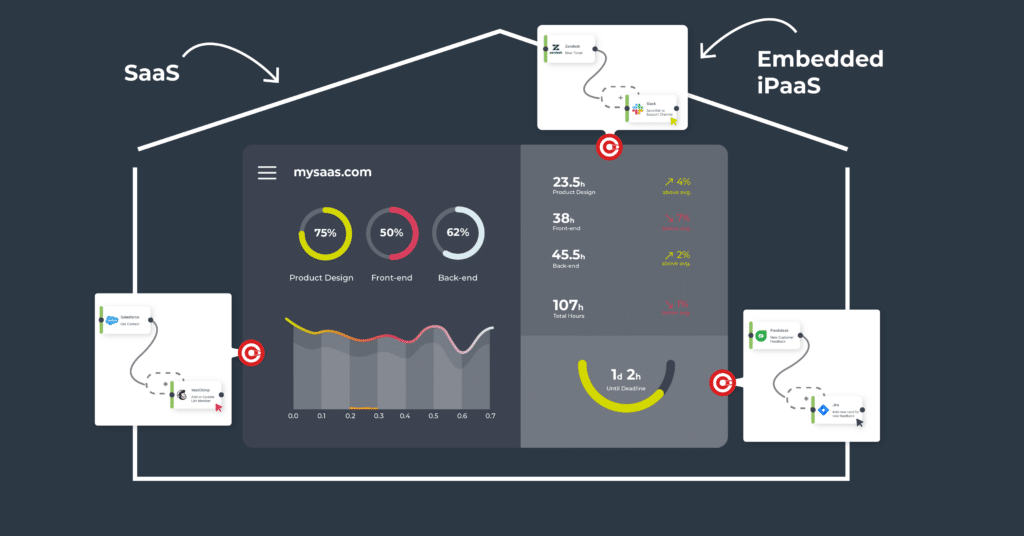
Integration Services can add significant value to a business, this is achieved through specific integration tools that can streamline operations, improve efficiency, and enhance overall productivity.
What are integration services?
Gartner states, “Integration services are detailed design and implementation services that link application functionality (custom software or package software) and/or data with each other or with the established or planned IT infrastructure.”
Integration services in B2B integration enable partners to create, upkeep, and control bespoke integrations for various cloud-based systems and applications. This allows the enterprise to efficiently explore process advancements without the constant requirement of modifying and managing multiple application programs that may not be compatible with one another.
What is iSaaS?
iSaaS aka integration software as a service is an entire industry of integration platforms and tools. These swiftly emerging platforms enable not just developers to undertake integration development but citizen integrators as well.
B2B integration services are a growing phenomenon and are becoming a go-to for organisations to improve business processes, increase efficiency, and add value.
How do these integration service options add value?
Here are several ways in which they contribute to business success:
Enhanced Efficiency and Productivity:
Integration services help automate processes by connecting different systems and applications, reducing the need for manual data entry and minimising errors. The automation of repetitive tasks allows employees to focus on more strategic and value-added activities, thereby increasing overall productivity.
Real-time Data Access and Accuracy:
Integration enables real-time data synchronisation across various business applications and systems. This ensures that all stakeholders have access to the most up-to-date and accurate information, supporting better decision-making.
Improved Customer Experience:
Integration services enable a seamless flow of data between customer-facing and internal systems. This leads to a more holistic view of customer interactions, allowing businesses to provide personalised and responsive services.
Cost Savings:
Automation of processes through integration services can lead to cost savings by reducing the need for manual intervention, minimising errors, and optimising resource utilisation.
Faster Time-to-Market:
Integration services facilitate quicker and more efficient product development cycles by ensuring that different teams and systems can collaborate seamlessly. This can be crucial in rapidly changing markets.
Better Decision-Making:
Integrated systems provide a unified view of business data, enabling better analysis and decision-making. This is especially important for executives who need accurate and timely information to make strategic decisions.
Adaptability and Scalability:
Integration services make it easier for businesses to adapt to changing market conditions and scale their operations. New applications or systems can be integrated seamlessly, allowing for flexibility in business processes.
Regulatory Compliance:
Integration services can help ensure compliance with industry regulations by facilitating the secure and accurate exchange of data between different systems. This is crucial in industries where adherence to regulatory requirements is mandatory.
Reduced Duplication of Effort:
Integrating various systems eliminates the need for duplicate data entry and reduces the chances of errors associated with manual data handling. This, in turn, increases the overall efficiency of business processes.
Competitive Advantage:
Businesses with well-integrated systems can respond more rapidly to market changes, customer demands, and emerging trends. This agility can provide a competitive advantage over competitors with less streamlined operations.
Integration Services Add Value to Businesses
In summary, integration services play a crucial role in modern business environments by promoting efficiency, accuracy, and agility. Businesses that invest in these services are better positioned to adapt to the dynamic nature of the iPaaS market and gain a competitive edge.



